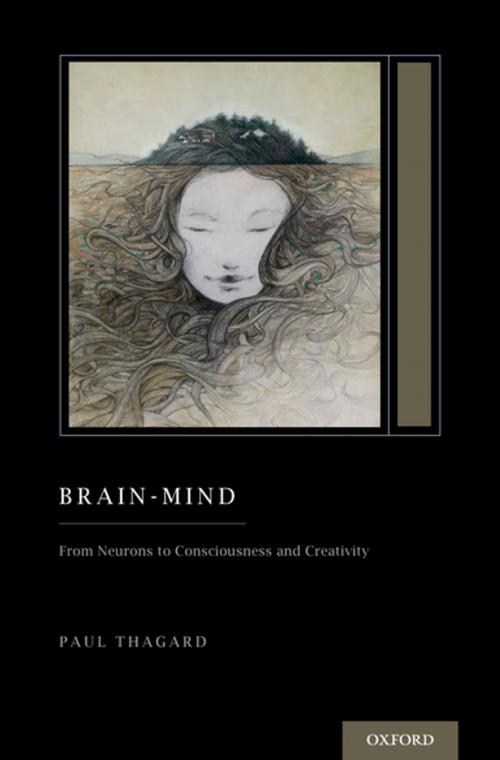Brain-Mind
From Neurons to Consciousness and Creativity (Treatise on Mind and Society)
Nonfiction, Health & Well Being, Psychology, Cognitive Psychology, Religion & Spirituality, Philosophy, Mind & Body| Author: | Paul Thagard | ISBN: | 9780190686383 |
| Publisher: | Oxford University Press | Publication: | January 30, 2019 |
| Imprint: | Oxford University Press | Language: | English |
| Author: | Paul Thagard |
| ISBN: | 9780190686383 |
| Publisher: | Oxford University Press |
| Publication: | January 30, 2019 |
| Imprint: | Oxford University Press |
| Language: | English |
How do brains make minds? Paul Thagard presents a unified, brain-based theory of cognition and emotion with applications to the most complex kinds of thinking, right up to consciousness and creativity. Neural mechanisms are used to explain mental operations for analogy, action, intention, language, and the self. Brain-Mind develops a brilliant account of mental operations using promising new ideas from theoretical neuroscience. Single neurons cannot do much by themselves, but groups of neurons work together to accomplish powerful kinds of mental representation, including concepts, images, and rules. Minds enable people to perceive, imagine, solve problems, understand, learn, speak, reason, create, and be emotional and conscious. Competing explanations of how the mind works have identified it as soul, computer, brain, dynamical system, or social construction. This book explains minds in terms of interacting mechanisms operating at multiple levels, including the social, mental, neural, and molecular. Unification comes from systematic application of Chris Eliasmith's powerful Semantic Pointer Architecture, a highly original synthesis of neural network and symbolic ideas about how the mind works. This book belongs to a trio that includes Mind-Society: From Brains to Social Sciences and Professions and Natural Philosophy: From Social Brains to Knowledge, Reality, Morality, and Beauty. They can be read independently, but together they make up a Treatise on Mind and Society that provides a unified and comprehensive treatment of the cognitive sciences, social sciences, professions, and humanities.
How do brains make minds? Paul Thagard presents a unified, brain-based theory of cognition and emotion with applications to the most complex kinds of thinking, right up to consciousness and creativity. Neural mechanisms are used to explain mental operations for analogy, action, intention, language, and the self. Brain-Mind develops a brilliant account of mental operations using promising new ideas from theoretical neuroscience. Single neurons cannot do much by themselves, but groups of neurons work together to accomplish powerful kinds of mental representation, including concepts, images, and rules. Minds enable people to perceive, imagine, solve problems, understand, learn, speak, reason, create, and be emotional and conscious. Competing explanations of how the mind works have identified it as soul, computer, brain, dynamical system, or social construction. This book explains minds in terms of interacting mechanisms operating at multiple levels, including the social, mental, neural, and molecular. Unification comes from systematic application of Chris Eliasmith's powerful Semantic Pointer Architecture, a highly original synthesis of neural network and symbolic ideas about how the mind works. This book belongs to a trio that includes Mind-Society: From Brains to Social Sciences and Professions and Natural Philosophy: From Social Brains to Knowledge, Reality, Morality, and Beauty. They can be read independently, but together they make up a Treatise on Mind and Society that provides a unified and comprehensive treatment of the cognitive sciences, social sciences, professions, and humanities.















